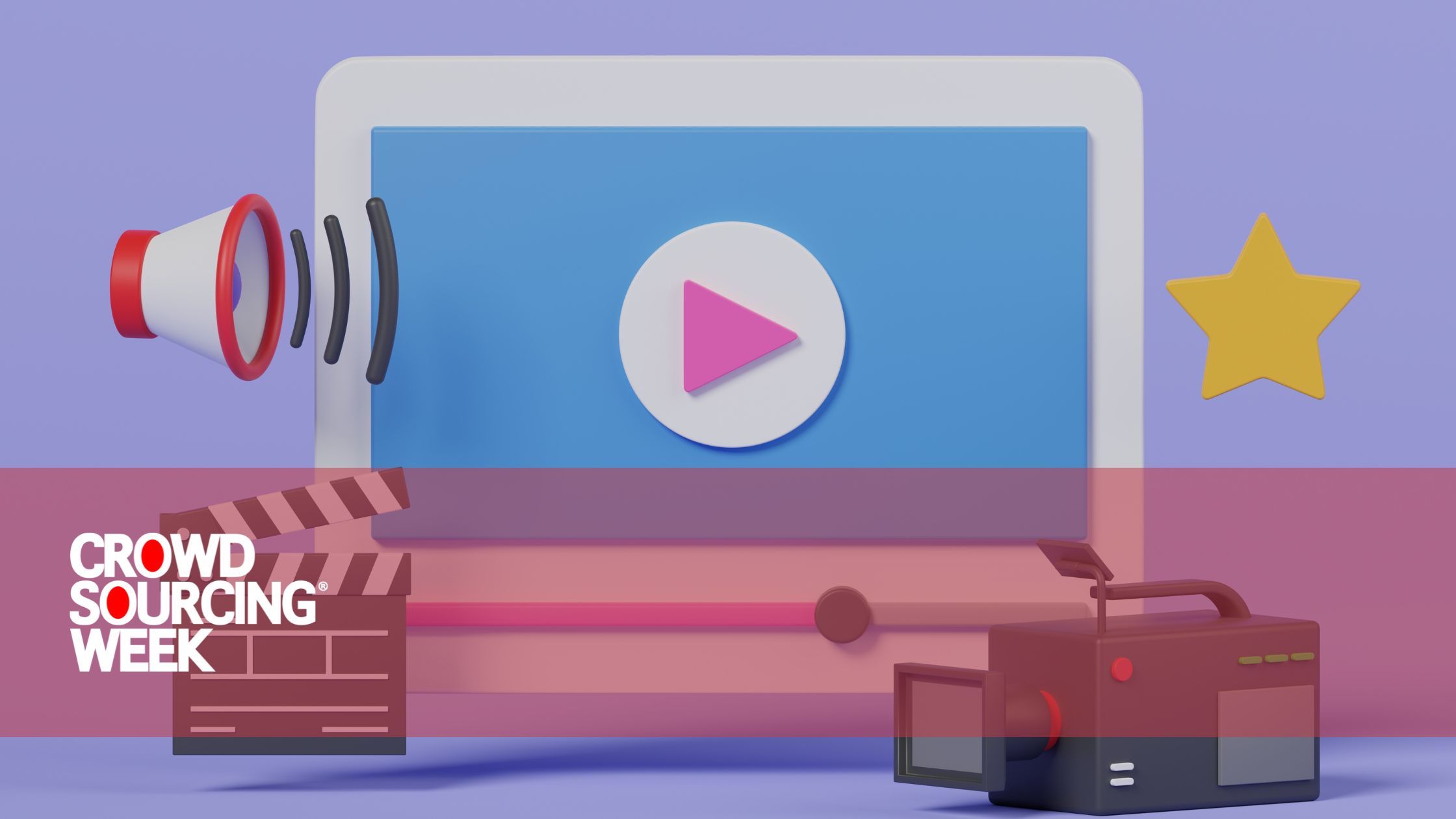In today’s digital age, the Creator Economy is reshaping how content is produced, consumed, and monetized. With a growing number of individuals becoming content creators and innovators, the landscape is rapidly evolving. This Crowdsourcing Week blog explores the Creator Economy, its current state, and what the future trends hold in store for content creators and innovators.
The Rise of the Creator Economy
The Creator Economy, also known as the Passion Economy, is a dynamic ecosystem that empowers individuals to turn their creativity, expertise, and unique skills into thriving businesses. It encompasses a wide range of content types, from TikTok and YouTube videos and podcasts to blogs, online courses, and much more.
A round-up of social media statistics published in March 2023 showed 2,500 new videos are uploaded to YouTube every minute. It has 2.1 billion monthly active users based all around the world and the average person watches 19 minutes of YouTube content a day. Crucially for brand owners and marketers, 70% of viewers have made a purchase after seeing a brand on YouTube.
In April 2023, a Goldman Sachs Research report said it expected the current estimate of 50 million global creators (of which just 4% are professionals earning over $100,000 a year) to grow at a 10-20% compound annual growth rate during the next five years. Through this growth the total Creator Economy is expected to achieve a market value close to U.S.$480 billion in 2027.
There are four key reasons why the Creator Economy has gained such momentum.
- Accessibility: Affordable tools and platforms make it easier than ever to create and distribute content to a global audience. There are many guides to AI-driven marketing tools that have accelerated adoption of creator economy strategies and techniques.
- Monetization Options: Creators can leverage various monetization channels, such as ads, sponsorships, merchandise sales, and direct support from fans.
- Community Engagement: Brands are increasingly aware that influencers’ direct connection with audiences allows for meaningful interactions, feedback, and community building. The creator economy ecosystem is growing. A new platform enables brands to identify the most relevant influencers, and for influencers to identify brands that are in the market for their services.
- Flexible Work: The Creator Economy offers the flexibility to work independently, set a personal schedule, and pursue passions.
What’s Next for Content Creators and Innovators?
The Creator Economy is on the cusp of even more innovation and transformation. Here are some key creator economy trends and a view of what the future holds.
Diverse Monetization Strategies
Creators primarily earn income through direct branding deals to pitch products as an influencer, via a share of advertising revenues with the host platform, and through subscriptions, donations, and other forms of direct payment from followers. Brand deals represent about 70% of revenue, according to the April 2023 Goldman Sachs Research survey data. Brands take advantage of input from creators to address and engage their target audiences through a wide range of diverse co-created output.
Content creators will continue to diversify their income streams, exploring newer ways to monetize content, such as NFTs (Non-Fungible Tokens), virtual events, exclusive memberships, and innovative subscription models.
Creators who build multiple income streams are particularly reassured when they are paid through automated payment systems.
Increased Collaboration
Cross-platform and cross-creator collaborations will become more prevalent as creators team up with others with complementary skills and expertise, such as making both videos and podcasts, or posting videos on YouTube and on TikTok. Joint co-creation activities enable creators to tap into each other’s audiences, fostering creativity and reaching new viewers.
Niche Communities
Creators will focus on cultivating niche communities, providing specialized content tailored to the specific interests of their audiences. They cultivate strong relationships with their audiences, which can be tapped into when using them as third-party representatives. The process becomes more of an iteration than the one-way messaging of paid-for advertising, and can help humanize a brand.
Technological Integration
Creator economy trends include the integration of emerging technologies like virtual reality (VR) and augmented reality (AR) that will open up new avenues for content creation and immersive experiences. Examples of immersive marketing include virtual reality tours of a hotel or venue, augmented reality apps that allow users to visualize products in their own homes, and interactive installations that offer hands-on brand experiences.
Educational Content
Educational content will continue to gain traction, with creators offering online courses, workshops, and tutorials, sharing knowledge and skills.
Data and Analytics
Creators will rely on data and analytics to gain insights into their audiences, helping them tailor content and strategies for maximum impact.
Conclusion
The Creator Economy is already an established transformative force shaping the way individuals create, share, and monetize content. It is a marketing channel increasingly recognized and adopted by brands. As this dynamic landscape continues to evolve, content creators and innovators must adapt and embrace new opportunities to thrive in this ever-changing digital world that is providing them with more commercial opportunities. Monetization will attract more rivals.
Do you operate in the Creator Economy – what’s your perspective on future developments?





0 Comments